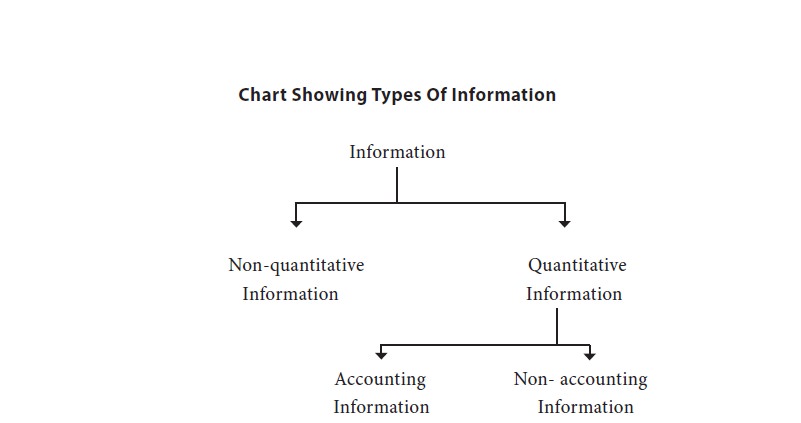Accounting For Managers - Basics of Accounting
Scope And Functions Of Accounting
Individuals engaged in such areas of business as finance, production, marketing, personnel and general management need not be expert accountants but their effectiveness is no doubt increased if they have a good understanding of accounting principles. Everyone engaged in business activity, from the bottom level employee to the chief executive and owner, comes into contact withaccounting. The higher the level of authority and responsibility, the greater is the need for an understanding of accounting concepts and terminology.
A study conducted in united states revealed that the most common
background of chief executive officers in united states corporations was
finance and accounting. Interviews with several corporate executives drew the
following comments:
“…… my
training in accounting and auditing practice has been extremely
valuable to me throughout”. “a knowledge of accounting carried with it
understanding of the establishment and maintenance of sound financial controls-
is an area which is absolutely essential to a chief executive officer”.
Though accounting is generally associated with business, it is not only
business people who make use of accounting but also many individuals in
non-business areas that make use of accounting data and need to understand
accounting principles and terminology. For e.g. An engineer responsible for
selecting the most desirable solution to a technical
manufacturing
problem may consider cost accounting data to be the decisive factor. Lawyers
want accounting data in tax cases and damages from breach of contract.
Governmental agencies rely on an accounting data in evaluating the efficiency
of government operations and for approving the feasibility of proposed taxation
and spending programs. Accounting thus plays an important role in modern
society and broadly speaking all citizens are affected by accounting in some
way or the other.
Accounting which is so important
to all, discharges the following vital functions:
Keeping Systematic Records:
This is
the fundamental function of accounting. The transactions of the business are
properly recorded, classified and summarized into final financial statements –
income statement and the balance sheet.
Protecting The Business Properties:
The
second function of accounting is to protect the properties of the business by
maintaining proper record of various assets and thus enabling the management to
exercise proper control over them.
Communicating
The Results:
As
accounting has been designated as the language of business, its third function
is to communicate financial information in respect of net profits, assets,
liabilities, etc., to the interested parties.
Meeting
Legal Requirements:
The
fourth and last function of accounting is to devise such a system as will meet
the legal requirements. The provisions of various laws such as the companies
act, income tax act, etc., require the submission of various statements like
income tax returns, annual accounts and so on. Accounting system aims at
fulfilling this requirement of law.
It may be noted that the
functions stated above are those of financial accounting alone. The other
branches of accounting, about which we are going to see later in this lesson,
have their special functions with the common objective of assisting the
management in its task of planning, control and coordination of business
activities. Of all the branches of accounting, management accounting is the
most important from the management point of view.
As accounting is the language of business, the primary aim of
accounting, like any other language, is to serve as a means of communication.
Most of the world’s work is done through organizations – groups of people who
work together to accomplish one or more objectives. In doing its work, an
organization uses resources – men, material, money and machine and various
services. To work effectively, the people in an organization need information
about these sources and the results achieved through using them. People outside
the organization need similar information to make judgments about the
organization. Accounting is the system that provides such information.
Any system has three features, viz., input, processes and output.
Accounting as a social science can be viewed as an information system, since it
has all the three features i.e., inputs (raw data), processes (men and
equipment) and outputs (reports and information). Accounting information is
composed principally of financial data about business transactions. The mere
records of transactions are of little use in making “informed judgments and
decisions”. The recorded data must be sorted and summarized before significant
analysis can be prepared. Some of the reports to the enterprise manager and to
others who need economic information may be made frequently; other reports are
issued only at longer intervals. The usefulness of reports is often enhanced by
various types of percentage and trend analyses. The “basic raw
materials” of accounting are composed of
business transactions data. Its “primary end products” are composed of various
summaries, analyses and reports.
The information needs of a business enterprise can be outlined and
illustrated with the help of the following chart:

The chart
clearly presents the different types of information that might be useful to all
sorts of individuals interested in the business enterprise. As seen from the
chart, accounting supplies the quantitative information. The special feature of
accounting as a kind of a quantitative information and as distinguished from
other types of quantitative information is that it usually is expressed in
monetary terms.
In this
connection it is worthwhile to recall the definitions of accounting as given by
the american institute of certified and public accountants and by the american
accounting principles board.












